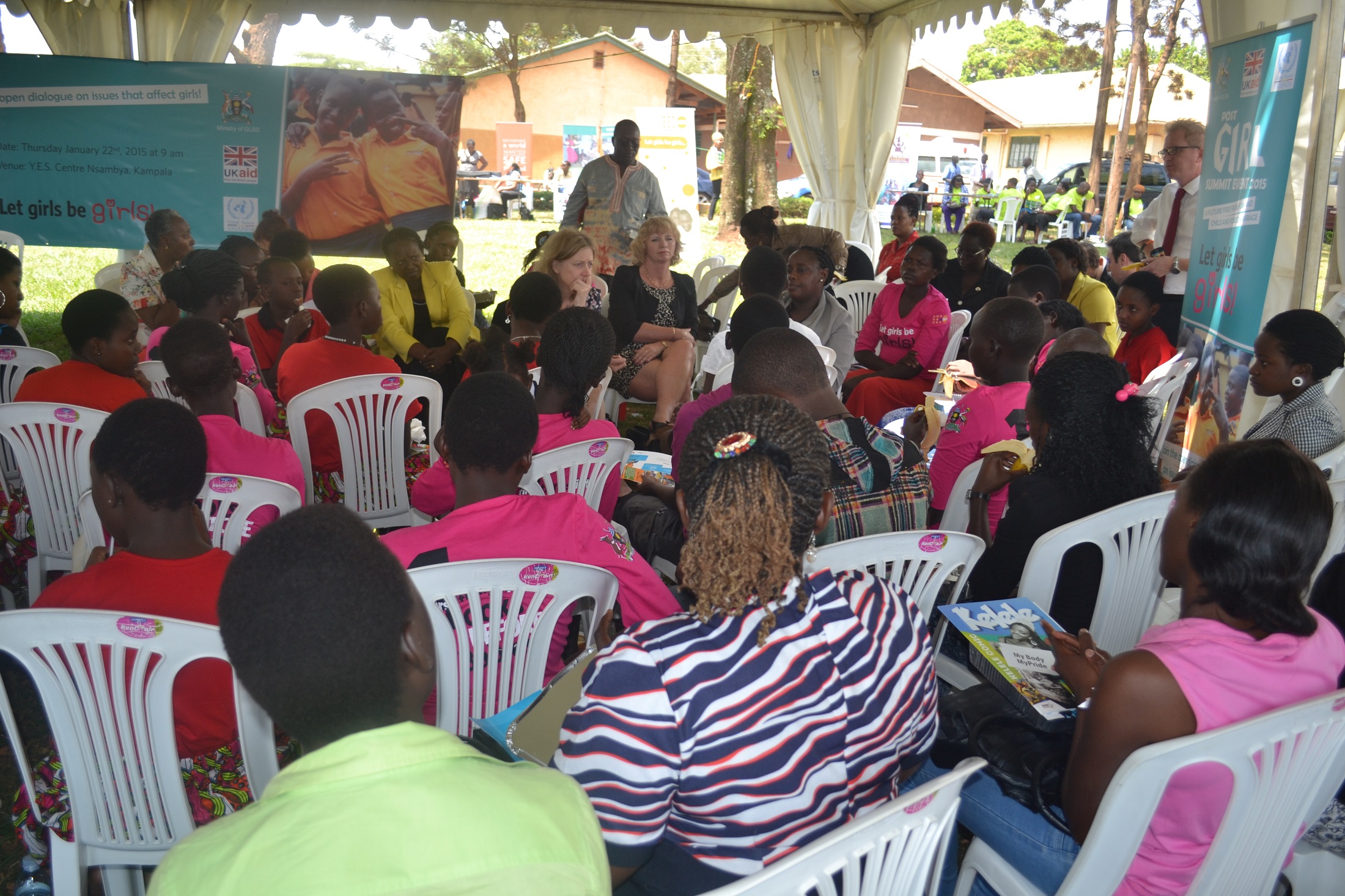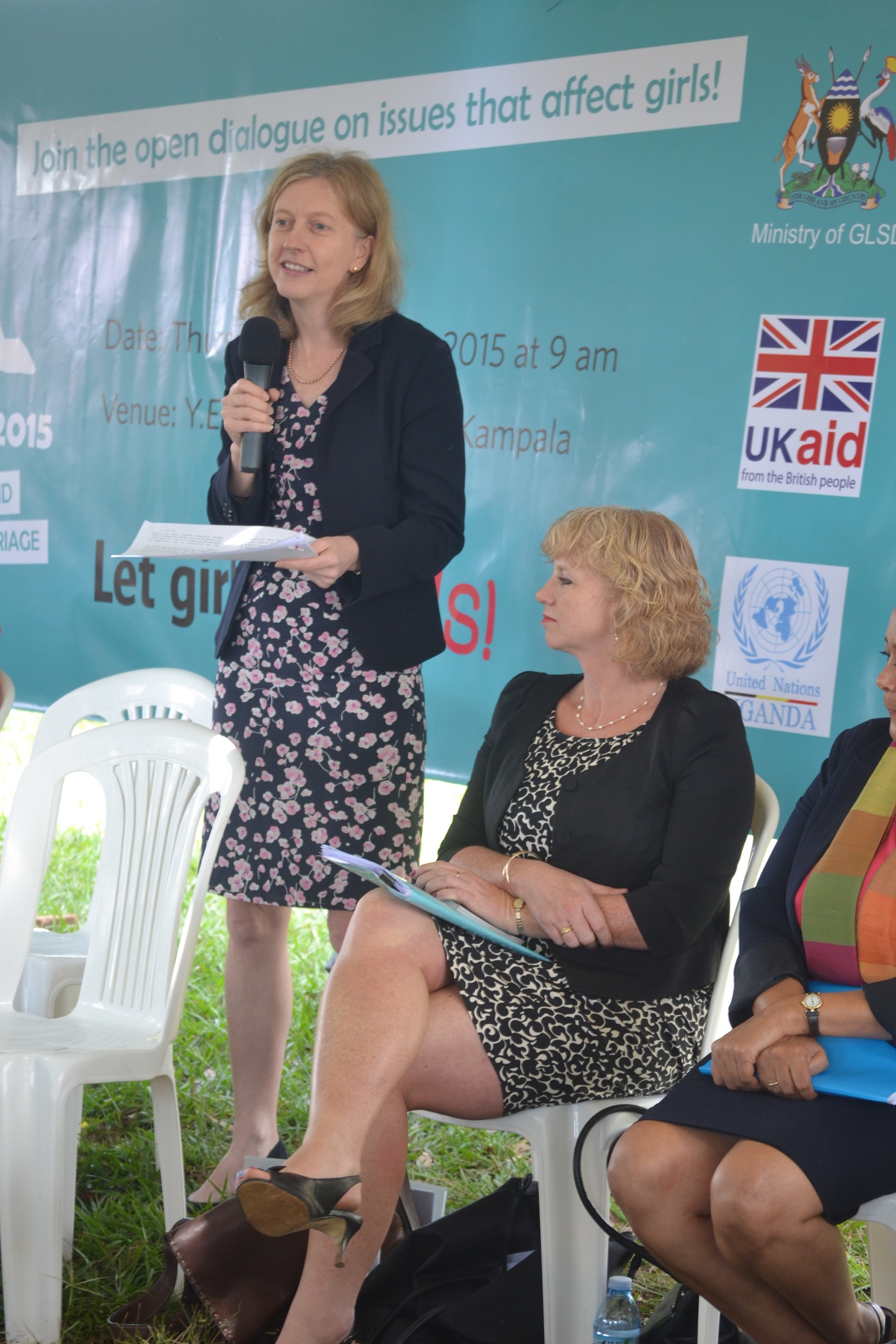The UK Department of International Development (DFID) in partnership with government of Uganda and the UN in Uganda hosted a post girl summit dialogue on January 21 2015.
The dialogue was held as a follow up to the first Girl Summit, held in UK in July 2014, aimed at mobilizing and reviewing efforts to end Female Genital Mutilation (FGM) and child, early and forced marriage within a generation.
At the event held in Nsambya on the outskirts of Kampala, over 100 participants, girls and young women shared their stories and struggles of dealing with Female Genital Mutilation, child marriage and related issues including teenage pregnancy.

A common thread in many of the stories was the lack of support by families and communities. In most cases, parents were singled out as facilitating marriage of girls to older men in exchange for money or material and being complicit in promoting these harmful practices.
"My father married me off to an older man. I ran away but he made me go back," one of the girls from Moroto District narrated. Moroto is one of the districts faced with the double threat of FGM and child marriage.
In response various speakers commended the girls for speaking out, noting that this was a first step in ensuring that the issues of FGM and child marriage are dealt with to ensure that girls and women can enjoy greater opportunities in the future.
Joy Hutcheon, the Director General for Country Programmes DFID encouraged the girls: "You are not alone. 
Ending child marriage is a global event; many people are working to end the scourge. Things are starting to change. Governments, including that of Uganda have passed laws and developed policies to protect girls and women from FGM and child marriage. The enactment of the FGM Act has sent a signal that FGM will not be accepted," she said.
She also called for greater involvement of men and boys, saying they should be part of efforts to create a world that says no to FGM and child marriage, pledging continued support to ending the harmful practices.
The UN Resident Coordinator Ms Ahunna Eziakonwa said child marriage and FGM are the main contributing factors to teenage pregnancy and pose life-threatening risks for girls. She called for additional resources and efforts to address the practices, in particular through investing in education.
"The importance of education in empowering girls and women has emerged as one of the surest way of ending harmful practices like FGM and child marriage. We need to promote enrollment and retention of girls in schools by building more girls schools especially in hard to reach areas, encourage girls to stay in school and communities to safeguard and empower girls to attain education," she said.
The dialogue ended with pledges of renewed commitments to tackle FGM and child marriage. On behalf of the Ministry of Gender Hon Mary Karooro Okurut, the Director of Gender and Community Development Ms Jane Mpagi pledged government commitment to take forward the commitments made during the Girl Summit.
UNFPA Country Representative Ms Esperance Fundira said it was important to have similar dialogues across the country to ensure that more girls are given an opportunity to air their views and also for the policy makers, leaders and other duty bearers to better understand the issues of FGM and early marriage - through the eyes of the girls.

